Syrian forces advance towards key Idlib city as terrorists block civilians' exit
Syrian forces inch closer to a key city in the northwestern Idlib Province as part of a counter-terrorism operation, but foreign-backed Takfiri militants prevent civilians from leaving through humanitarian corridors.
Syria's official SANA news agency reported on Saturday that army units had managed to wrest control over the villages and towns of Karsian, Ma’ar Shamarin, Abu Jreif and Takana near the city of Ma'arat al-Nu'man after eliminating terrorists.
Syrian soldiers conducted accurate artillery and missile strikes on militant-held positions in those towns, the report said.
The so-called Syrian Observatory for Human Rights war monitor said government ground forces have seized seven villages on the outskirts of Ma'arat al-Nu'man over the past 24 hours.
They have now reached "the edges of the city and are... within gunfire range of part of the highway", the London-based center said.
Syria's al-Watan newspaper reported that army forces were "just around the corner" from the city, whose "doors are wide open".
Idlib and nearby areas of Hama, Aleppo and Latakiya provinces are threatened by the Hayat Tahrir al-Sham (HTS) terrorist group, led by members of the former al-Qaeda franchise.
Idlib remains the only large area in the hands of terrorists after the Syrian military managed to undo militant gains across the country and bring back almost all of Syrian soil under government control.
In another report, SANA said the terror outfits occupying Idlib and Aleppo countryside use locals as human shields and prevent them from leaving to safe areas through Abu al-Dohour, al-Habit and al-Hader corridors.
Jabhat al-Nusra and affiliated terrorist groups have established a number of monitoring posts in the areas adjacent to the recently liberated areas in a bid to block the civilians' exodus, the report added.
On Saturday, Syria's Foreign Ministry wrote to the UN, stressing that the operation in Idlib and Aleppo against Takfiri elements "will not stop until the elimination of those terrorists, who threaten safety and security of Syrian civilians."
In two letters sent to the UN chief and the head of the Security Council, the ministry complained that armed terrorist groups, particularly Hayat Tahrir al-Sham and Jabhat al-Nusra, continue to target civilians and facilities such as hospitals, schools and places of worship in Idlib and Aleppo.
The militants prevent locals from leaving the occupied towns to safe areas, according to the letters.
"The precise and well studied military operations carried out by the Syrian Arab Army and its allies in Aleppo and Idlib come after the appeals from the Syrian citizens in these two governorates, and in response to the systematic crimes committed by the armed terrorist groups which continue to exploit the unwavering military and logistic support provided by Western countries and their tools in the region," the letters read.
US soldier dies in Syria
Also on Saturday, the Pentagon announced that an American soldier had died in Syria, adding that the incident was under investigation.
According to a release by the department, Army Specialist Antonio I. Moore, 22, from Wilmington, North Carolina, died in Syria's Dayr al-Zawr Province on Friday "during a rollover accident while conducting route clearing operations."
General Frank McKenzie, the US Middle East commander, made an unannounced tour of five military bases in Syria, during which he was asked about the future of American troops in the Arab country.
"This is an area where we made a commitment. I think we’re going to be here for a while," he replied.
On Saturday morning, McKenzie met with Mazloum Abdi, the commander of the so-called Syrian Democratic Forces (SDF) - a US-backed alliance of mainly Kurdish militants. He said that Abdi wanted assurances that Washington would continue to help SDF militants.
The US commander said his answer was that the US would continue to partner with militants and control Syrian oil fields, but that he had not put a deadline on it.
“He knows, and I agree, that we’re not going to be here for 100 years,” McKenzie said during a stop at Green Village military outpost, east of Dayr al-Zawr.
“I frankly don’t know how long we’re going to be here and I have no instructions other than to continue to work with our partner here.”
D-8’s role in Iran’s economy after Cairo summit
China slams US as ‘war-addicted’ threat to global security
China ‘firmly opposes’ US military aid to Taiwan
VIDEO | Press TV's News Headlines
President Yoon Suk Yeol to be removed from office
At least 19 Gazans killed by Israeli airstrikes since dawn: Medics
Leader: Iran neither has nor needs proxy forces
US fighter aircraft shot down ‘in friendly fire’ amid aggression on Yemen


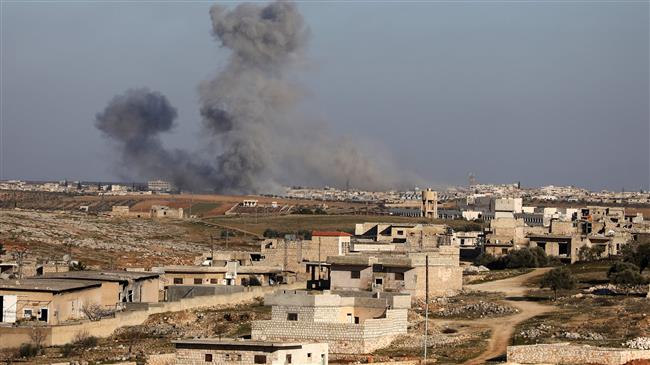

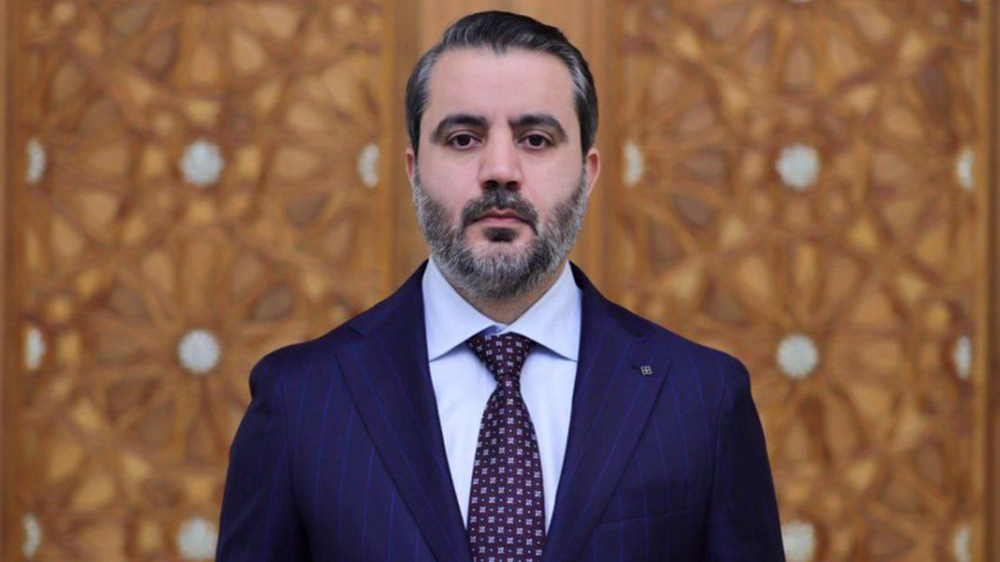

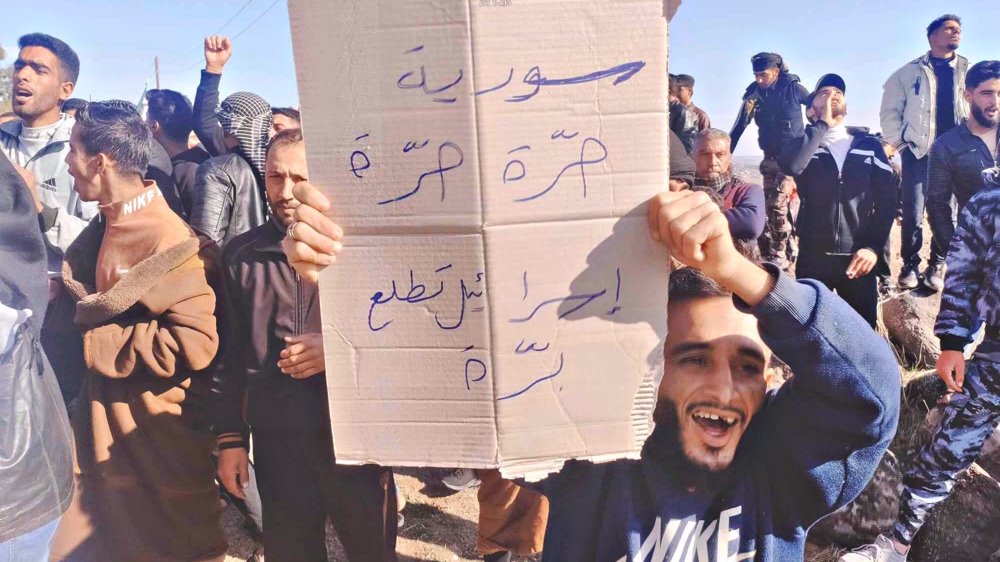



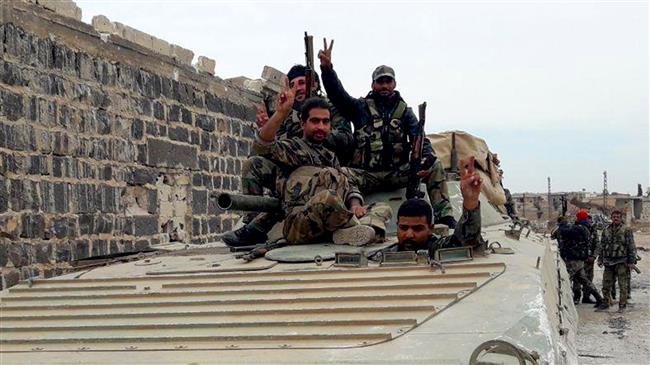
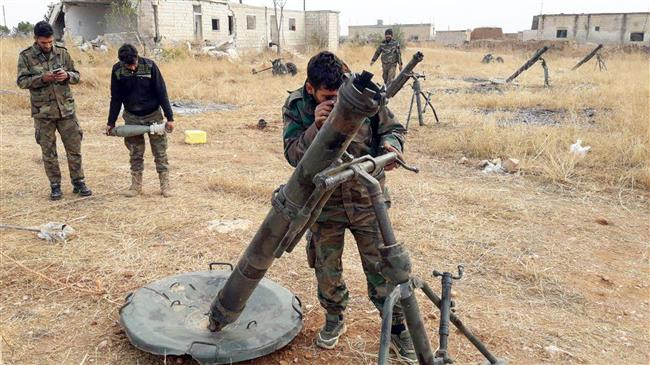
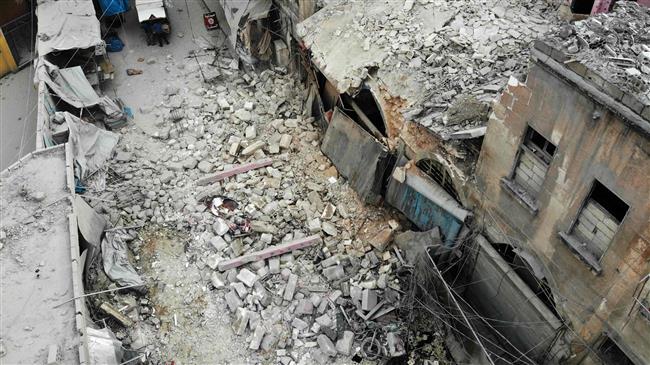
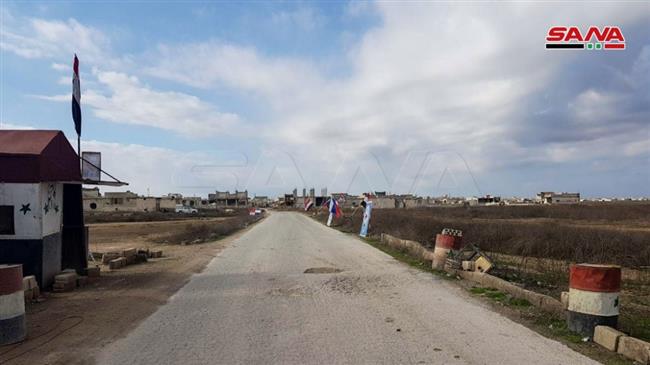
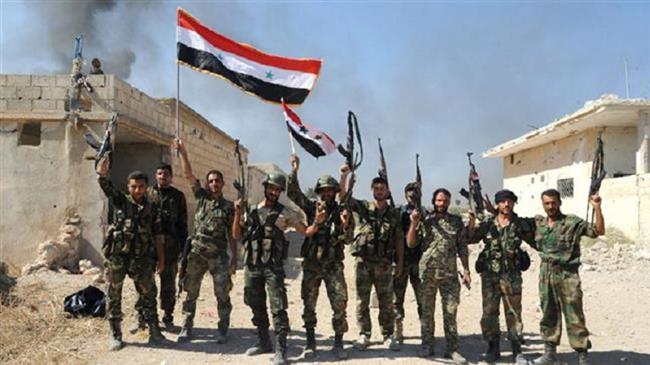

 This makes it easy to access the Press TV website
This makes it easy to access the Press TV website